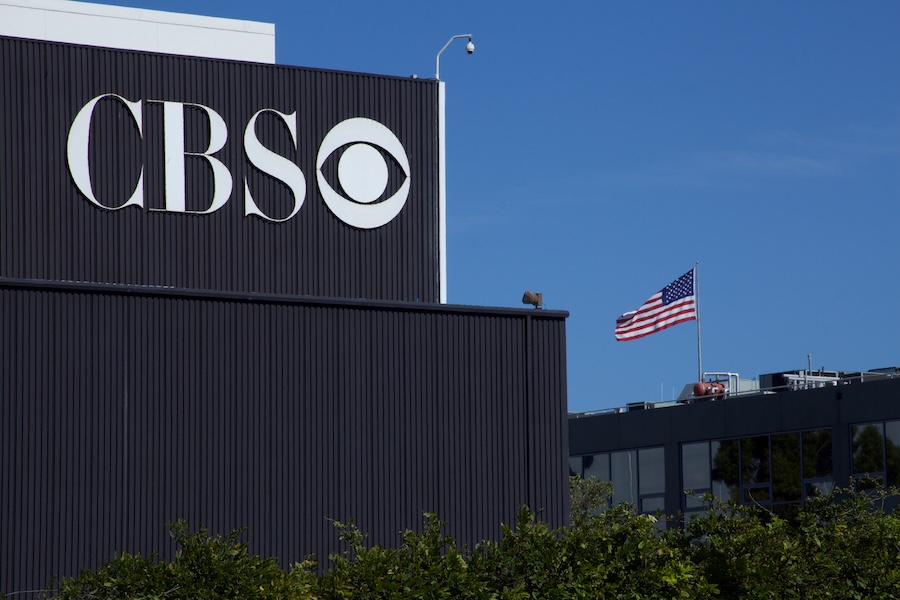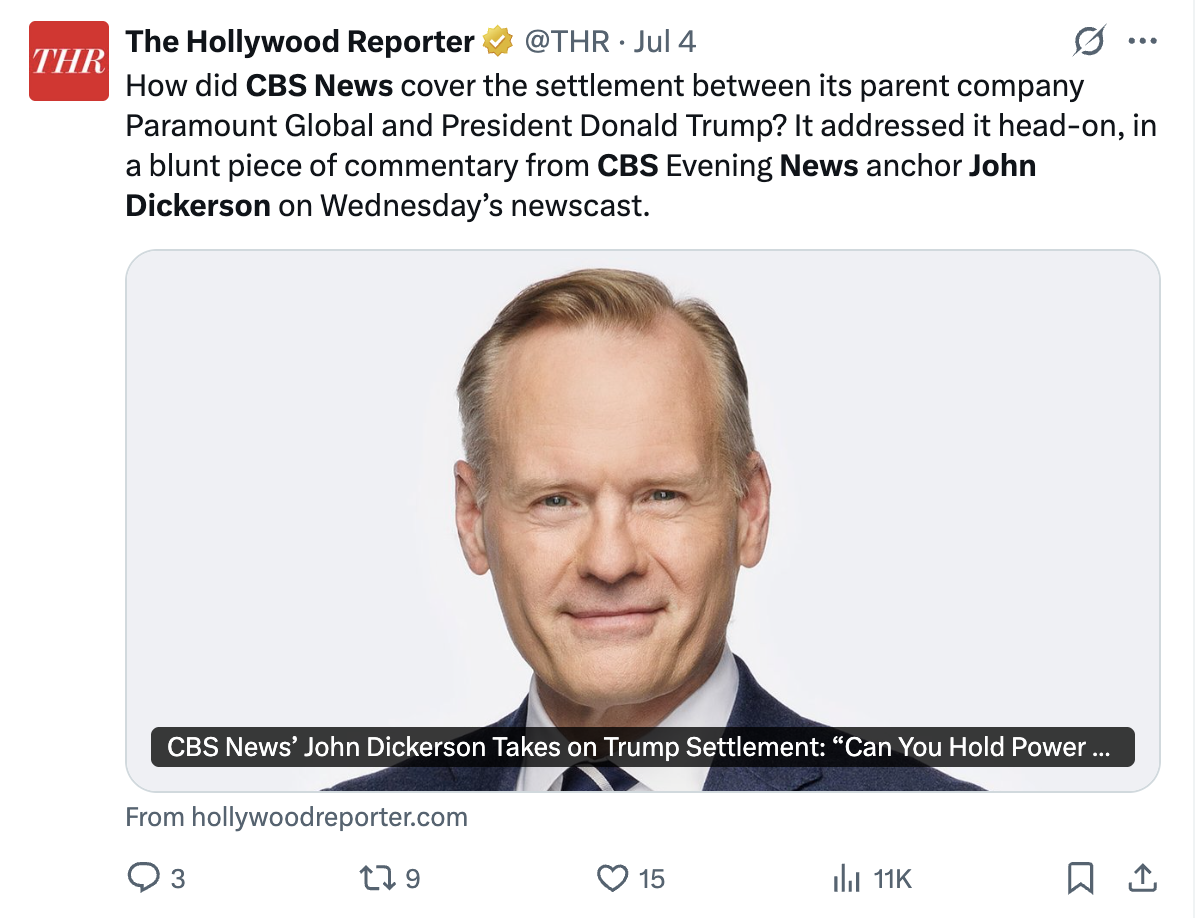Politics
CBS News Host Goes Rogue, Melts Down Over His Own Network’s Settlement With Trump

A top on-air talent at CBS went off script last week, reacting with rage to the news that his network will be settling a lawsuit brought by President Donald Trump to the tune of $16 million.
The staggering sum is a reflection of the financial cost that CBS would have had to endure if it chose to fight the allegation that last year’s “60 Minutes” interview with former Vice President Kamala Harris was deceptively edited to damage Trump’s campaign. Above the network, Paramount president Shari Redstone was reportedly pushing attorneys to bring the legal fight to a close.
An announcement about the settlement sent “CBS Evening News” anchor John Dickerson into a paroxysm.
“The Paramount settlement poses a new obstacle,” he told viewers on Wednesday.
“Can you hold power to account after paying it millions? Can an audience trust you when it thinks you’ve traded away that trust?” he continued. “The audience will decide that.”

Dickerson, 57, was named co-anchor of the network’s flagship program earlier this year alongside Maurice DuBois. He previously worked at “60 Minutes,” the Sunday evening news show that’s been beset by resignations and fury following President Trump’s lawsuit.
The $16 million settlement matches one by ABC News, which Trump sued after anchor George Stephanopoulos falsely accused him of being found criminally liable for rape. Trump was found guilty in a civil suit brought by E. Jean Carroll, a difference he alleged should have been clarified by the former Clinton spokesman.
Complicating matters for Paramount is its impending acquisition by Skydance in a multi-billion-dollar merger that must first be approved by the Federal Communications Commission and Trump appointee Brendan Carr. Redstone was reportedly nervous that the merger would be denied on monopolistic grounds.
But all that be damned to Dickerson, who began Wednesday’s program with a hubristic review of his profession.
“Paramount Global, the parent company of CBS News, settled a suit with President Trump today,” Dickerson said to begin the segment. “Journalists don’t like to report on themselves. Sometimes, that’s false humility. Mostly, it’s a practical limitation. Reporters try to find order in chaos.
“We prefer to explain the cause of a bombing, the intent of a bill, the marvel of a new discovery. Putting chaos in preliminary order helps viewers make sense of their world. They tell us this, at airports, restaurants, at church.”
“The audience brings us their fears, their questions, their good-faith view of things. It reminds us that we are stewards of that concern. It’s a grace to receive another’s trust, but also to have a mission that shapes your work; a mission, that can sound grandiose.”
He continued, per the Hollywood Reporter:
“We are not all that. Public figures have taught us that misguided mission can do more harm than brute force,” he continued. “We pride ourselves on our B.S. detector, so it ought to work on ourselves too. When it doesn’t, the stakes are real, a loss of public trust, the spread of misinformation.”
“A visitor to our newsrooms might wonder why we debate a single word for so long, why it takes hours to answer the simple question: What is this story about? Why there’s a cry of frustration when a detail is off by an inch? That is what work looks like when it is deeply felt, when the audience’s concerns become ours, passed by bucket brigade from the subjects of our stories, to correspondents, to producers, to editors, fact checkers and writers,” he said.
“The obstacles to getting it right are many. The Paramount settlement poses a new obstacle. Can you hold power to account after paying it millions? Can an audience trust you when it thinks you’ve traded away that trust? The audience will decide that. Our job is to show up to honor what we witness on behalf of the people we witness it for. The network’s first heroes ran to rooftops during the bombing of London. Its current ones carry that same instinct.”
“But another story from CBS’ early days also captures this spirit. The young correspondent was filing a story when it started to rain. The takes they’d already filmed were fine. Everybody could have just gone inside, but she persisted the rain, turning the notes in her hand to pulp. Again and again, she worked to get it right. This wasn’t London under the fire. It was just a regular story, that’s the point. So the rain has picked up, but we’ll stay at it. We hope you will, too. See you tomorrow.”
WATCH:

